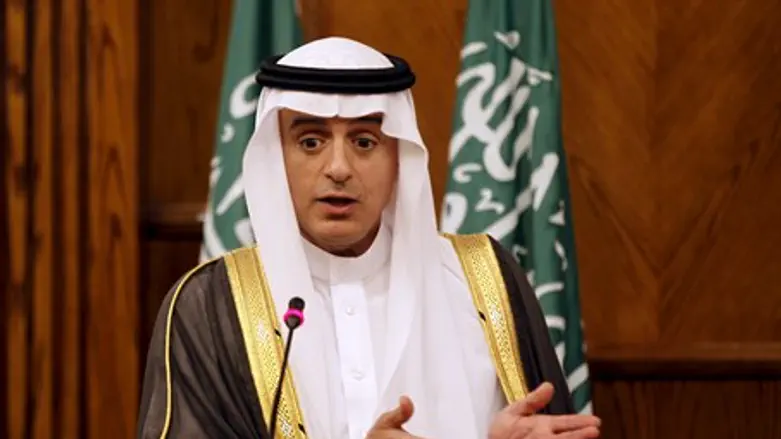
Saudi Arabia on Saturday night firmly rejected Iran's criticism of its handling of the hajj pilgrimage, after Tehran demanded an inquiry into a stampede that killed at least 769 people.
"I believe the Iranians should know better than to play politics with a tragedy that has befallen people who were performing their most sacred religious duty," foreign minister Adel al-Jubeir said, according to the AFP news agency.
Earlier on Saturday, Iranian President Hassan Rouhani pressed for an investigation of the Saudi hajj stampede, in an address to the United Nations that highlighted Tehran's alarm over the tragedy.
In his speech Rouhani said he wanted to "emphasize the need for swift attention to the injured as well as investigating the causes of this incident and other similar incidents in this years' hajj."
But Jubeir, delivering remarks along Secretary of State John Kerry, later insisted that Saudi Arabia was on top of the situation.
"The kingdom has had a long history of spending tremendous resources to care for the pilgrimage to ensure that the pilgrims who come there have a successful pilgrimage," he said, according to AFP.
"And we will reveal the facts when they emerge. And we will not hold anything back. If mistakes were made, who made them will be held accountable," he added.
"And we will make sure that we will learn from this and we will make sure that it doesn't happen again. I want repeat again this is not a situation with which to play politics.
"I would hope Iranian leaders would be more sensible and more thoughtful with regards to those who perished in this tragedy, and wait until we see the results of the investigation," said the Saudi minister.
The dispute came amid tensions between Iran and Saudi Arabia over the conflicts in Yemen and Syria that Riyadh views as a bid by Tehran to expand its influence in the region.
Shortly after the stampede tragedy, Iranian Supreme Leader Ayatollah Ali Khamenei blamed the Saudi authorities, citing "improper measures" and "mismanagement".
"The government of Saudi Arabia must accept the huge responsibility for this catastrophe," he said.
And on Friday, Iran demanded that it and other affected countries be represented in the Saudi investigation into the stampede, with First Vice President Eshaq Jahangiri saying "there is no question about the poor management" of the pilgrimage and the "inexperience of security personnel" on the ground at the time.
Iran’s blame of Saudi authorities echoes comments by senior Egyptian religious officials to Iranian media, in which the possibility was raised that Saudi authority over the hajj pilgrimage and Meccan holy sites might be divided among Muslim states.
Those comments came before the stampede, but after an unusual crane collapse two weeks ago at the Grand Mosque in Mecca.
The collapse killed 107 people and wounded 238 at the holiest site in Islam which houses the Kaaba cube Muslims pray towards, and it ironically took place on September 11, caused by high winds and a sandstorm.